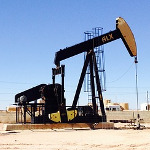Landowners, Energy Companies Seek to Capture Court’s Ruling in Historic Hydraulic Fracking Case
 The Supreme Court of Pennsylvania has agreed to hear a case to consider whether the rule of capture applies to hydraulic fracking, reports The Hydraulic Fracking Blog of Norton Rose Fulbright.
The Supreme Court of Pennsylvania has agreed to hear a case to consider whether the rule of capture applies to hydraulic fracking, reports The Hydraulic Fracking Blog of Norton Rose Fulbright.
The case involves landowners’ trespass and conversion claims against an energy company based on hydraulic fracking activities. The plaintiffs compared the energy company’s fracking activity to slant drilling, claiming that the proppants of hydraulic fracturing “serve the same purpose as a drill bit invading the land.”

 The rise of local bans on hydraulic fracturing, or “fracking,” by local governments has sparked a recent backlash in carbon-producing states, writes
The rise of local bans on hydraulic fracturing, or “fracking,” by local governments has sparked a recent backlash in carbon-producing states, writes